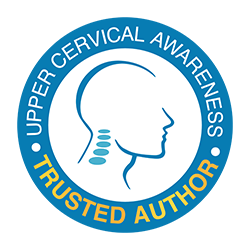Our practice is known for being very thorough and getting to the root cause of your problem—often finding what other practitioners have missed. To accomplish this and provide tailored care and the best outcomes for our patients, we FIRST start with a complimentary health history/ consultation and preliminary evaluation to determine if we can help. If not, we’ll let you know and try to find the best practitioner to suit your needs, and there’s no charge. If we can help, we’ll recommend a detailed exam that may include specific X-ray imaging to get to the core problem. At the end of the day, you get to choose what’s best for you.
Do you take care of children and infants?
Absolutely! We love taking care of little ones and expecting moms too! Not only is it generally easier to evaluate children, but they also respond much quicker than most adults and have the most to gain. Our philosophy is that growing healthy children is much easier than repairing damaged adults.
Do you work with Insurance?
Most of our patients have insurance or Medicare, which may or may not cover our care. Regardless, they’ve all received excellent care and results with the detailed approach of our unique form of chiropractic. If you have chiropractic coverage, we make it easy for you to seek reimbursement—and if you don’t have coverage, that’s fine too—we have pre-pay and family discounts making our care affordable for just about everybody.
How long will it take for me to start seeing results from your care?
That’s a hard one to answer, as everyone is different. It can be immediate or take days, weeks, or even months with complicated cases. You can take comfort in knowing we’re using the best care and protocols to move you in the right direction as quickly as your body can. But just remember—healing, like any process, takes time.
Do you only adjust the upper cervical spine?
Great question! The upper cervical spine is the most critical area, as it is “Houston Control” of the Central Nervous System. We are very focused on addressing this area as specifically as possible. When the upper neck is out of alignment (subluxated), you will get compensatory misalignments down the spine. Actually, you’ll get structural compensations down to your feet! But, to answer the question, yes, we provide supportive care to the rest of the spine as needed to maximize your results. This is generally done with gentle, specific corrections with an instrument (Integrator) that is neurologically focused. It’s a synergistic combination of care that tends to yield wonderful and lasting results!
What do you recommend for home care?
Depending on your particular findings and condition, we will custom tailor a home care regimen to help you get better faster and, equally important, MAINTAIN those lasting results and stability.
Do you take care of people injured in car accidents?
Yes, we do. We provide high-quality care for those injured from a car crash. Typically, there is a degree of whiplash with accompanying ligament damage. We go to great lengths to find and document your injuries so that you can get the care you need, avoiding or minimizing long-term chronic health consequences if left untreated.
Do you adjust on the first visit?
This would also depend on your case and what we find during your consultation and exam. Typically, your doctor will need ample time to review your findings and imaging to know how to give you their best work. If that’s the case, you can begin care on your next visit after the doctor has explained your findings and recommendations.
Is the adjustment painful? Will I be sore afterward?
The adjustments are not painful at all. Our techniques are very gentle, and there is no twisting or cracking of your spine. Some patients note temporary discomfort or symptoms after their adjustment as the body adapts, heals, and “adjusts” to the adjustment.
I’m trying to turn my health around, so beyond your chiropractic care, do you offer wellness lifestyle education or work with other natural providers?
Yes, and yes! At the end of the day, our goal is to help your reach your God-given health potential! We offer regular free workshops on everything from handling stress to nutrition to growing healthy children. We love to teach!
We have a network of natural providers we regularly refer to if we believe you would benefit—from functional nutrition and medicine to naturopathy, acupuncture, counseling, and more. Please don’t hesitate to contact us if you’re searching for those resources.
What does an Upper Cervical Chiropractor do?
Upper Cervical Chiropractors restore proper head, neck, and spine alignment by performing a specific, precise, and gentle correction to the upper neck. Accidents and injuries tear loose the connective tissue that holds the spine in place, and this causes the spine to break down and lock into a stressed position. A misaligned spine frequently begins with a head or neck injury such as a motor vehicle crash, concussion, whiplash, slip or fall, sports injury, childhood injury or other trauma to the head and neck. The most common location for this type of misalignment to originate is the upper neck, otherwise known as the upper cervical spine. Upper Cervical Chiropractic Care focuses on correcting misalignments in the upper neck region of your spine. This type of misalignment can lead to a variety of debilitating symptoms and conditions, including vertigo, Ménière’s disease, dizziness, migraines, headaches, fibromyalgia, Trigeminal Neuralgia, TMJ, chronic neck pain, sciatica, low back pain, and many other conditions. Mount Dora Upper Cervical Chiropractic is uniquely qualified to correct upper neck misalignments to remove pressure and irritation on structures, including the brainstem and cranial nerves, effectively allowing you to restore your body’s vitality.
What happens after an upper cervical adjustment?
Each specific and precise upper neck adjustment your Upper Cervical Chiropractic Doctor does is designed to ease the C1 and C2 bones back to their proper places and alignment. Patients have varying experiences after receiving Blair Upper Cervical in Mount Dora. Some enjoy immediate improvements, while others, especially those with severe cases of spinal misalignment, notice slight muscle stiffness that clears up in a few days. The goal of our care is to provide you with fast relief, maximum recovery, and long-lasting results.
How often should a chiropractor adjust your neck?/ How often should a chiropractor see you?
Each case of spinal misalignment is different. So, Upper Cervical Care Doctors custom design an approach based on the needs of each individual patient. Depending on the severity of your spinal misalignment and nerve interference and how quickly you respond to care will determine your need for follow-up care. You may need to return for subsequent adjustments for several weeks or even months after the initial session to correct and stabilize a misaligned spine. Once a misaligned spine is stabilized, it is recommended that you maintain your spinal health through visits to your Upper Cervical Chiropractor in Mount Dora much the same way that you maintain the health of your teeth by seeing your dentist.
Why do chiropractors require so many visits?
A misaligned spine may have developed over many years or even decades. Multiple visits to a chiropractic office are necessary because the bones must gradually be eased back into their natural alignment. Mount Dora chiropractors use minimal force to realign C1 and C2 bones to prevent adding trauma to an already compressed or irritated brainstem, cranial nerves, and other structures. Also, it’s worth noting that chronic pain and other debilitating conditions don’t happen overnight. Hence, the healing process can also take time.
How do I deal with migraines?
Upper Cervical Chiropractic is an extremely effective way to provide Mount Dora migraine relief, so you can take advantage of it each time you have an episode. We also recommend steering clear of your migraine triggers and taking preventive medications to abate the pain and discomfort you experience. The most important aspect of dealing with migraines is getting to the underlying cause. Often, upper neck misalignments are the underlying cause.
What is the main cause of migraines?
Researchers have yet to uncover the exact mechanism behind every migraine episode. But, more and more evidence points to abnormal brain activities as the most likely culprit behind debilitating migraine attacks. But what leads to these abnormal brain activities? Frequently, the function of the brain is being impacted by misalignments in the upper neck. Accidents and injuries to the head and neck can lead to a displacement of the top 2 bones in the neck, which affect blood flow and cerebral spinal fluid flow to and from the brain. These changes can have a dramatic impact on the brain’s function and can lead to a variety of problems, including migraine headaches.
What happens if you ignore migraines?
Migraine attacks can worsen and set off several unpleasant symptoms like pulsating headaches, fatigue, nausea, vertigo, vomiting, visual aura, and odd food cravings. Such symptoms can easily drain the joy in your life and impact other aspects of your well-being. We strongly suggest Investigating the underlying cause of your episodes and tapping into helpful remedies such as seeing a chiropractor for migraine in Mount Dora as soon as possible.
How can vertigo go away?
Vertigo attacks often indicate an underlying health problem. So, if you experience dizzying spells and spinning sensations, it’s a good idea to rule out the possible cause of your symptom. This will help you determine the techniques or remedies for your situation. Some popular vertigo remedies include Upper Cervical Chiropractic in Mount Dora, The Epley Maneuver, and vestibular therapy.
What causes vertigo?
Spinning sensations can stem from various problems ranging from vestibular disorders like Meniere’s and benign paroxysmal positional vertigo to nervous system issues like head trauma, spinal tumor, and stroke.
When should you worry about vertigo?
Most vertigo attacks are non-life-threatening. However, it would help if you still looked out for red flags like facial paralysis, limb numbness, thunderclap headaches, and loss of consciousness. If you spot any of these symptoms, call 911 to receive urgent medical attention.



